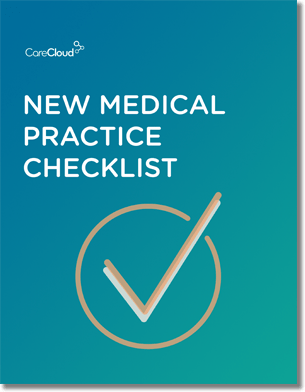Opting to utilize electronic health record software at your practice can bring about a number of fantastic new capabilities. Digital access to health history empowers your doctors to be better prepared or provide a more personal experience to patients, which can be important to revenue cycle management. Similarly, advanced analytics and easy-to-use tools can make billing and administrative tasks easier to visualize and complete successfully.
According to Health IT Consultant, some practices or other care centers may be setting themselves up for failure by not fully considering the financial side of the equation before integrating EHR software. These digital tools have the power to improve the way your business processes payments and delivers care, but without considering how the clinical and financial areas of your business will be effected, it may possible to be unprepared during the process.
Here are some important tips and things to keep in mind to ensure that your adopting of EHR software goes as smoothly as possible:
Do: Set Clear Goals
Before charging ahead with a full roll-out of your new EHR platform, be sure to identify well-defined goals and benchmarks associated with the new technology. Select a few clinical outcomes that you wish to improve, and be sure that these are well-articulated and fully understood.
“Be sure to identify well-defined goals and benchmarks.”
Implementing EHR software at your practice is also about improving efficiency and delivering high-value care, and for that reason, it is also essential to set goals that are contingent on better financial performance as well.
Prioritizing revenue cycle management during this process is a way to ensure that your new digital health history capabilities are improving things across the board at your business, and it is possible to visualize changes or trends with helpful graphs and other tools.
Don’t: Ignore your Financial Team
A 2015 survey found that many CFOs and other financial professionals working in healthcare felt as if they were not properly consulted when their care center adopted an EHR platform, Healthcare Informatics reported. Even if your practice does not have an in-house fiscal advisor or executive, these findings still underline the importance of encompassing both financial and clinical considerations when bringing new technology into the fold.
Do: Monitor Changes Closely
A 2015 survey found that many CFOs and other financial professionals working in healthcare felt as if they were not properly consulted when their care center adopted an EHR platform, Healthcare Informatics reported. Even if your practice does not have an in-house fiscal advisor or executive, these findings still underline the importance of encompassing both financial and clinical considerations when bringing new technology into the fold.
Don’t: Tie Finances to Clinical Changes
Health IT Consultant stated that because EHR software can improve payment delivery and other billing tasks, it is unwise to let changes to treatment options dictate new revenue cycle management considerations. The two should cooperate in achieving shared goals, but underestimating how your EHR platform can inform financial best practices would be a misuse of resources.

Do you know what you need when setting up a new medical practice?


